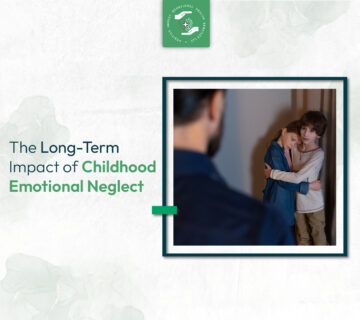Discovering Asperger’s syndrome can be a journey filled with mixed emotions. Through this blog, we aim to simplify and demystify Asperger’s syndrome, covering its key symptoms and the treatments available. Whether for yourself, a loved one, or simply out of curiosity, we hope to provide you valuable insights in a friendly, easy-to-understand manner.
Understanding Asperger’s Syndrome
Asperger’s syndrome, a developmental disorder falling on the autism spectrum, has nuances that are both fascinating and challenging. It’s characterized by significant difficulties in social interaction and nonverbal communication, alongside restricted and repetitive patterns of behavior and interests. However, unlike other forms of autism, individuals with Asperger’s often retain their linguistic and cognitive development, showcasing a unique blend of abilities and challenges.
The story of Asperger’s is one of diversity and complexity. With symptoms ranging from mild to severe, each individual’s experience is inherently unique. This variance presents a challenge for diagnosis but also highlights the importance of personalized approach in understanding and support. As we delve deeper, we uncover the layers that make Asperger’s syndrome a distinct part of the autism spectrum, emphasizing the importance of awareness and sensitivity in the behavioral health community.
Key Symptoms to Recognize
Identifying Asperger’s syndrome involves looking for key symptoms that manifest differently across age groups. In children, it might include challenges in social interactions, such as difficulty understanding social cues or engaging in a two-way conversation. They might also display intense focus on a single interest or hobby, often at the exclusion of other activities. Teens and adults, on the other hand, might face hurdles in understanding the subtleties of language, humor, and sarcasm, in addition to navigating social interactions and forming close relationships.
The complexity of these symptoms demands a nuanced understanding. It’s not just about the behaviors themselves but how they affect an individual’s daily life and well-being. Recognizing these signs early can lead to better support and accommodation, making a significant difference in one’s life journey with Asperger’s. It’s a call to action for greater empathy and support from the larger behavioral health community, underlining the importance of looking beyond the surface to understand someone’s experience fully.
Coping Strategies and Support Systems
Coping with Asperger’s syndrome involves a combination of strategies, support systems, and treatments tailored to each individual’s needs. From behavioral therapies aimed at improving social skills to educational support that caters to unique learning styles, the pathway to empowerment is multifaceted. The role of family, friends, and educators is instrumental, fostering an environment of understanding, acceptance, and encouragement.
Available Treatments and Therapies
The spectrum of treatments for Asperger’s syndrome is as diverse as the individuals it affects. Cognitive behavioral therapy (CBT) stands out for its effectiveness in addressing challenges with social interactions and repetitive behaviors. Occupational therapy and speech-language therapy also play crucial roles, aiding in motor development and communication skills. Moreover, specialized educational programs provide the structured support necessary for academic and social success, illustrating the comprehensive approach needed in addressing Asperger’s syndrome.
The Importance of a Supportive Community
Beyond formal treatments, the importance of a supportive community cannot be overstated. Support groups, both in-person and online, offer invaluable spaces for sharing experiences and strategies, creating a sense of belonging among individuals and families grappling with Asperger’s. Schools and workplaces adopting inclusive practices further normalize differences, promoting a culture of acceptance and understanding. It’s through these collective efforts that individuals with Asperger’s can experience a sense of community and belonging, essential for thriving in society.
Beyond Treatment: Living with Asperger’s
Living with Asperger’s syndrome is a journey of continuous learning and adaptation. Embracing one’s uniqueness while navigating the social world presents challenges but also opportunities for growth and fulfillment. Individuals with Asperger’s have shown remarkable talents and contributions across various fields, breaking stereotypes and broadening our understanding of neurodiversity. Their journey underscores the importance of acceptance, resilience, and the pursuit of one’s passions, illuminating paths to success not despite, but because of, the unique perspectives they bring.
A Journey Towards Understanding and Support
Navigating Asperger’s syndrome doesn’t have to be a journey taken alone. With the right understanding of its symptoms and the treatments available, individuals can lead fulfilling lives. Remember, seeking professional advice is always a step in the right direction. Embracing acceptance and understanding paves the way for support, growth, and empowerment.






No comment